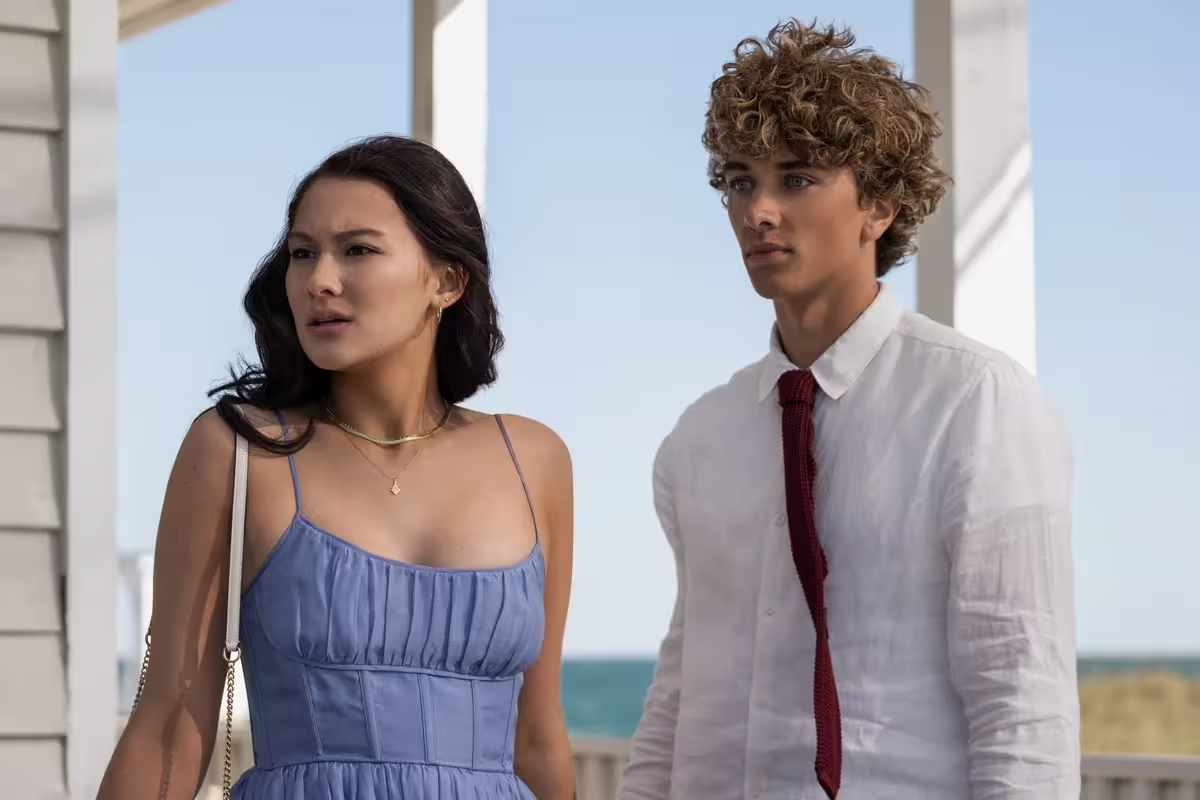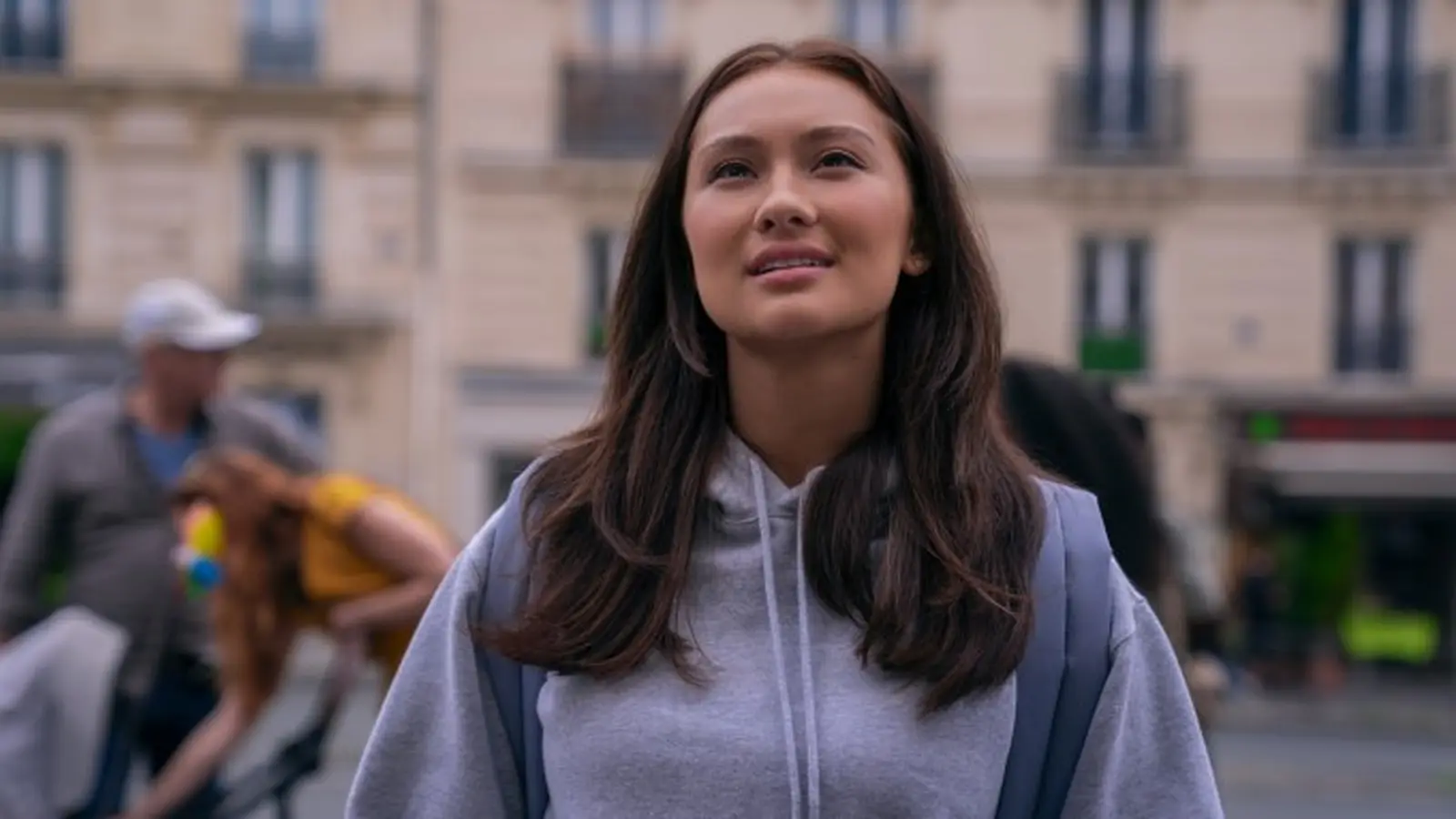5 Minutes
Finale recap — who does Belly choose?
The three-season YA drama The Summer I Turned Pretty closed its run with a finale that ties up its central love triangle while spotlighting themes of grief, choice, and personal agency. In the episode’s resolution, Belly (Lola Tung) ultimately chooses Conrad (Chris Briney). After an emotional reunion in Paris — a sequence that builds from awkwardness into an intimate evening by the Seine — Belly catches Conrad on an early train to Brussels and declares, “I choose you of my own free will.” The two return to Cousins, hand-in-hand, bringing the series to a deliberate, romance-centered close.
Paris: intimacy, doubt and a decisive kiss
The Paris act provides the finale’s emotional spine. Conrad surprises Belly outside her apartment and spends a day being shown around by her, culminating in a moonlit dance and a kiss set to Taylor Swift’s “Dress.” That sequence functions as both visual payoff and thematic reckoning: Belly has been searching for who she is apart from family obligations and the shadow of Susannah’s death, while Conrad wrestles with whether his feelings are inherited duty or genuine love.
Their conversation on the banks of the Seine is the episode’s most explicit moment of self-examination. Belly admits uncertainty about whether their love was partly motivated by outside expectations; Conrad insists his feelings are authentic. The turn comes when Belly returns to him on the 5 a.m. train and affirms her choice — framed as fully voluntary and repeated across imagined alternate lives. This resolves the series’ central arc while keeping the emotional complications that made the story compelling.
Back in Cousins and Boston: side arcs find closure
The finale distributes gentle, concrete endings for secondary characters. Jeremiah (Gavin Casalegno) pivots toward a culinary path in Boston and finds a new romantic connection with Denise (Isabella Briggs), while Taylor and Steven confront a relocation opportunity; the couple decide to move to San Francisco, suggesting a grown-up step forward rather than a sudden departure. Adam and other adult figures provide the supportive context needed for the younger characters to take independent steps.
These threads culminate in a large dinner at Cousins, where friendships are repaired and new relationships quietly begin. The tone here is steady and closed-loop, giving viewers the domestic closure that often defines teen-to-adult transition narratives.

Context, comparisons and production notes
As a Prime Video YA adaptation based on Jenny Han’s novel, the series blends beachhouse melodrama with the slow-burn intimacy of modern streaming romances. Comparatively, it sits closer to the warm nostalgia of To All the Boys I’ve Loved Before than to the more fractured intimacy of Normal People; its focus is emotional clarity and healing rather than existential ambiguity. The show’s use of music — notably needle drops from Fleetwood Mac through Olivia Rodrigo and Taylor Swift — has become a hallmark for signaling emotional beats, and the “Dress” cue in the finale functions as a clear soundtrack payoff.
Behind the scenes, the showrunner’s orientation toward the female gaze and character-driven scenes has been frequently highlighted by critics and fans alike. Production choices — from Belly’s Parisian bob to the visual motif of Cousins’ beach sand (a literal vial gifted between lovers) — underline the series’ emphasis on tactile, memory-rich storytelling.
"The finale deliberately privileges character agency over melodramatic twist," says film critic Anna Kovacs. "It resists a tidy, cinematic spectacle in favor of contained, emotionally specific moments. For viewers invested in the characters, that economy feels earned."
Reception and legacy
Fan reaction on social media reflected a split between those who saw Belly’s decision as inevitable and those who preferred a different outcome — a division common to beloved YA adaptations. Industry observers have noted the show’s role in cementing Prime Video’s catalogue of youth-focused drama and its contribution to the continuing trend of streaming platforms investing in novel-to-screen franchises.
Whether judged as a romantic finale, a coming-of-age close, or a study in grief-informed attachment, the final episode gives the principal characters clear, mostly affirmative next steps. For viewers tracking the show as a cultural touchstone of contemporary YA television, the series leaves a coherent and emotionally tidy footprint rather than an ambiguous coda.
In short: Belly ends up with Conrad, the supporting cast moves into plausible new chapters, and the show’s soundtrack and visual callbacks provide the kind of closure many viewers sought.
Source: deadline


Leave a Comment